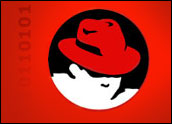
Microsoft and South Korea’s LG Electronics (LGE) have announced a patent cross-licensing deal, similar to one Microsoft recently signed with Novell, that allows LG to use Microsoft technology in its products while giving Microsoft access to LG’s intellectual property.
The deal means LG can use Linux in its products without fearing litigation from Microsoft, which recently voiced claims that some of the code used to create the popular open source operating system was first patented by Microsoft. Additionally, LG is said to have patented technology, now owned by business solutions provider MicroConnect, that Microsoft can use in its Xbox line of gaming consoles.
Novell and Microsoft recently penned a similar deal in which the companies agreed to not sue each other’s customers over intellectual property claims. Over the past year, Microsoft announced similar agreements with companies including Fuji Xerox, NEC, Nortel Networks, Samsung and Seiko Epson. It said it did this “to help build bridges between the world’s leading computer hardware, software and telecommunications solutions providers.”
Everybody Gets Paid
Financial terms of the arrangement were not disclosed, but the companies said Microsoft will make a payment to LG and MicroConnect for some patents, including those related to operating systems, while LG will provide Microsoft with ongoing payments to compensate for its use of Linux.
In announcing the deal with LG, Microsoft said it “has focused on patent agreements in the recent past to develop a best-practices model for protecting intellectual property (IP) and respecting the IP rights of others, as well as building bridges with an array of industry leaders, including consumer electronics, telecommunications and computer hardware providers.”
The agreement and LG’s “good relationship with Microsoft enable LGE to provide improved telecommunications solutions to our customers,” said Jeong Hwan Lee, executive vice president of the Intellectual Property Center at LG.
The agreement, he added, appropriately recognizes the value of his company’s computer system-related patents, “which includes patents directed to computer architecture utilized in game consoles and other products.”
For its part, MicroConnect is “pleased to be able to make a contribution to the strengthened IP relationship between LG and Microsoft,” said Alan Loudermilk, the company’s founding partner.
A Win-Win
The deal looks like a winner for both sides but especially for LG, said Strategy Analytics wireless analyst Chris Ambrosio.
“I see two significant positives for LG,” he told LinuxInsider. “One is the potential for significant licensing revenues from Microsoft’s efforts to sell products in its networked home division and also in its embedded devices group with the Xbox and some of the things that it’s doing in the mobile area.
“The second positive is that LG potentially gets to use some Microsoft intellectual property.”
Cross-licensing, Ambrosio noted, is increasingly common in the wireless device world. “Usually both vendors benefit greatly from reduced costs by having access to each other’s technology,” he said. “So LG potentially has the benefit of using some kind of Microsoft entertainment or gaming component in its wireless device portfolio. That can only help LG as it starts to evolve these converged media devices to compete with the iPhone and other products.”
Winks and Handshakes
Endpoint Technologies President Roger Kay questioned whether Microsoft “actually managed to validate its claims” about Linux being based at least partially on Microsoft IP. Even if it hasn’t, the back-room deals keep coming.
“This is part of a recent trend that Microsoft has been engaged in to cross-license IP with companies that are engaged in some open source activity,” he told LinuxInsider. “The benefits accrue to both parties in that Microsoft gets to use some of the technologies that these companies own but, maybe even more importantly, it puts Microsoft on a solid legal footing with licensing its intellectual property and allows Microsoft to participate in the open source movement without compromising its proprietary assets.”




















































